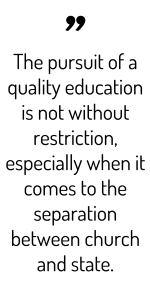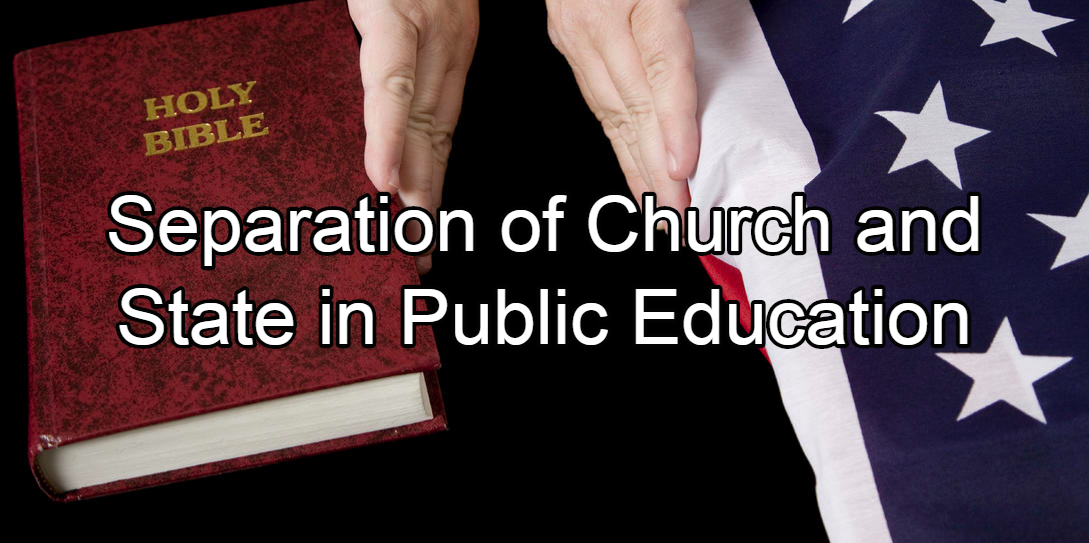The separation between church and state is a principle that is at the core of the U.S. constitution and the constitutions of individual states. It is a hot topic when it comes to school voucher systems and the schools that students can attend, especially in Nevada.
 The pursuit of a quality education is not without restriction, especially when it comes to the separation between church and state. This fundamental principle is a part of the Nevada and U.S. constitutions and has stirred controversy since the inception of the United States. Case-in-point, the American Civil Liberties Union challenged Nevada’s education voucher system in mid-2015, taking issue with public funds being used for education at religious schools.
The pursuit of a quality education is not without restriction, especially when it comes to the separation between church and state. This fundamental principle is a part of the Nevada and U.S. constitutions and has stirred controversy since the inception of the United States. Case-in-point, the American Civil Liberties Union challenged Nevada’s education voucher system in mid-2015, taking issue with public funds being used for education at religious schools.
The ACLU argues the separation of church and state principle applies to schools and voucher systems, where students use public funds to cover tuition and related education expenses. This point has been debated among Nevada lawmakers, but the ACLU is not satisfied with the state’s rationale regarding the schools that students can attend.
Students and parents are in a tough position at this point, both in the state of Nevada and in other states. Many students are only seeking a quality education, and often-times their best options lie at religious schools that are in close proximity to their family homes. Those students already using public funds to attend religious schools are in a more awkward position, because if they’re forced to stop their education or change schools, it can impact their ability to learn and their social groups.
However, the ACLU is only trying to uphold the principles that that Nevada constitution contains. It is a subject that is often hard to apply to everyday life, making it difficult for lawmakers to create legislation that is 100 percent effective. Groups such as the ACLU help the public scrutinize the effectiveness of legislation, making the laws of Nevada and the U.S. more effective.
The separation between church and state is a fundamental principle outlined in Nevada’s constitution, as well as the U.S. constitution. Church and state issues related to education are contentious topics among lawmakers, parents and concerned citizens.


